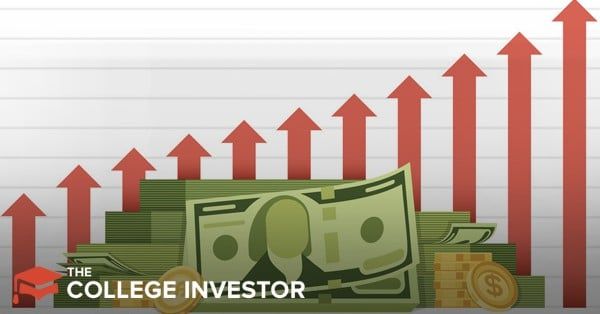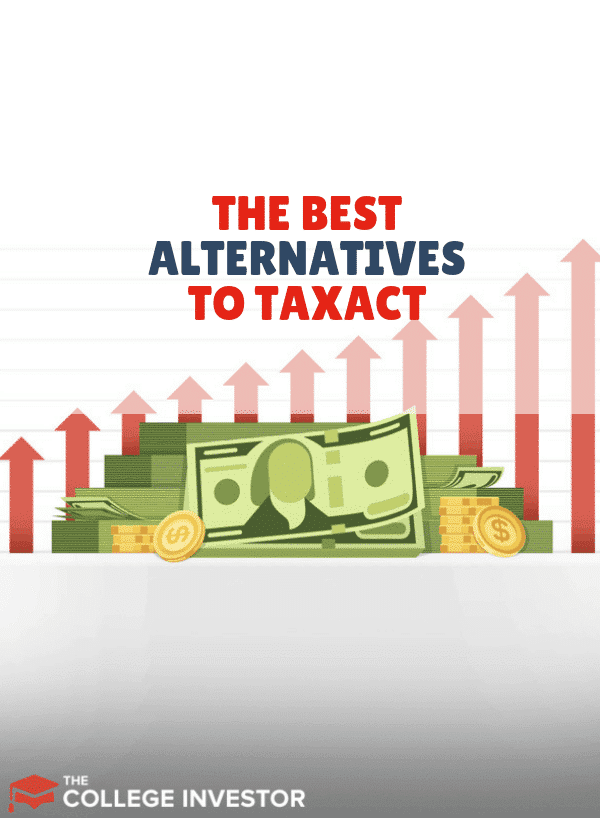
Choosing the best tax filing software can sometimes feel like a daunting task.
With so many options, it’s difficult to tell which one will help you get the maximum refund.
TaxAct is one of the best tax software options, which will let you file both simple and complex returns and guarantees you a maximum refund, but it isn't your only option.
TaxAct has some stout competition, and while its affordability used to be a big draw for customers, over the last two years, they've increased their prices substantially without doing much to improve the product.
Plus, TaxAct has one of the most limited free file options this year, even with their prices are going up and up! That's leaving some to look for TaxAct alternatives.
Looking for alternatives?
Our guide will take a deeper look at this software and put it to the test against its competitors to help you choose the best tax software this filing season.
Comparing TaxAct to Other Tax Software Products
Before we delve into each of the tax software program alternatives, take a look at how their basic features stack up to get an idea of the features, cost, and support they have to offer:
TaxAct | TurboTax | H&R Block | TaxSlayer | FreeTaxUSA | Cash App Taxes | |
|---|---|---|---|---|---|---|
Free Version Details |
|
|
|
|
|
|
Prices | Federal: $0 - $64.95 State: $39.99 - $44.99 | $0 - $89 | Federal: $0 - $85 State: $0 - $37 | Federal: $0 - $52.95 State: $0 - $39.95 | Federal: $0 - $7.99 State - $14.99 | $0 |
Live Tax Support | Yes - $59.99 | Yes - $0 - $169 | Yes - starts at $89 | Yes - included on Premium and Self-employed versions | Yes - $39.99 | No |
Audit Support | No | Yes - included but limited | Yes - only if taxes are done with a professional | Yes - limited assistance included on Premium version | Yes - $19.99 | Yes - included |
Breaking Down TaxAct Software
TaxAct used to be one of the least expensive tax filing software options, but that's changed over the last several years.
Its pricing starts at $0, for federal returns but state returns are $39.99.
Here are a few things you need to know about TaxAct:
- Free Edition – Ideal for individual filers with simple tax situations. Federal costs $0. State costs $39.95 even on the free tier.
- Deluxe Plan – Ideal for moderately complex tax situations. Federal filing costs $24.99, and each state filing costs $44.99.
- Premier Plan – Ideal for the most complex situations except for self-employed individuals and other business owners. Federal filing costs $34.99, and each state filing costs $44.99.
- Self-employed Plan – Has all the features of the premier plan, and includes features for small business owners. Federal filing is $64.99, and state filing costing $44.99.
Compared to previous years, TaxAct has decreased their prices quite a bit, making them quite competitive in the space. You can also add Live Tax Advice to any plan, including the free plan, for an additional $59.99.
You don’t have to worry, however, if TaxAct doesn’t meet your expectations. There are many alternative software options you can try.
They include TurboTax, H&R Block, TaxSlayer, FreeTaxUSA, and Cash App Taxes.
Let’s compare each of them with TaxAct so that you can choose the best option.
TaxAct vs. TurboTax
Both TaxAct and TurboTax offer multiple options of paid editions, which support increasingly complex tax situations.
For both providers, the free plan allows you to file a 1040 and one state return. However, you aren’t allowed to itemize or file any of the Schedules 1 to 6.
That means the free plans can only work for you if you’re not looking to claim any credits or deductions except for the child tax credit or the earned income tax credit.
When it comes to features and ease of use, TurboTax would be your best choice.
In fact, TurboTax is usually considered the most user-friendly tax filing software on today’s market. Its interview style tax prep interface keeps things simple and easy to follow.
TurboTax also wins when it comes to customer support, thanks to TurboTax Live. With this feature, you can have a face-to-face chat with a tax expert. TaxAct also offers access to tax experts, but you can’t have a face-to-face conversation with them.
Keep in mind that you have to incur more costs to enjoy TurboTax’s cutting-edge customer support.
TurboTax simplified their plans this year to DIY, Live Assisted, and Live Full Service. DIY plans do not come with any access to tax professionals. With Live Assisted, you file your own taxes but you can ask questions to a tax pro as needed. Finally, Live Full Service is where a tax pro files your taxes for you.
- Free DIY - $0 + $0 for one state
- DIY: $39 - $89 + $39 for state
- Live Assisted - $89 - $169 + $49 for state
- Live Full Service - starts at $89 + $49 for state
Overall, TaxAct would be a better option for you as it costs slightly less but can get a great deal of work done.
If you prefer face-to-face support, however, you can decide to dig deeper into your pocket and invest in TurboTax.
TaxAct vs. H&R Block
Both TaxAct and H&R Block allow you to file federal and state taxes, but you will have to pay a bit more with H&R Block. The big difference is that H&R Block has in person assistance if you need it.
Overall, it is slightly less expensive to file with TaxAct, unless you qualify for the free version with H&R Block as the state return is also free. H&R Block is also a good choice if you are nervous about filing online by yourself and think you may want to speak to someone in person.
This year, H&R Block pricing is as follows:
- Free Version - $0 + $0 for one state
- Deluxe - $35 + $37 per state
- Premium - $65 + $37 per state
- Self-Employed - $85 + $37 per state
You'll also pay $49 per state tax return you need to file.
When it comes to features and ease of use, TaxAct’s interface is somewhat unappealing, but it gives you access to all the basic features.
You will also get help throughout your tax preparation process, but the help is less detailed compared to what you get from H&R Block.
H&R Block boasts a straightforward and easy to use interface. It also offers adequate help during the preparation process. The software can direct you to a searchable knowledge base and links to important resources.
With either software, you can import W-2s, which helps to save time. However, H&R Block also allows for 1099 imports. Both providers also provide tools with which you can calculate the deduction values of charitable donations.
When it comes to customer support, H&R Block could be a better option, with physical locations spread across the country.
If you are okay with getting advice online, however, you can capitalize on the help options TaxAct has to offer. The good thing is that both providers offer access to actual tax experts.
Overall, TaxAct offers a slightly better deal if you don’t mind the absence of face-to-face customer support.
However, if you feel you will need some help and don’t mind the extra cost that comes with it, you probably want to go for H&R Block.
TaxAct vs. TaxSlayer
If you have to choose between TaxAct and TaxSlayer and you are budget-conscious, then you’d be better off with TaxSlayer since it’s less expensive.
The cheapest paid package for TaxSlayer will cost you $29.95 while TaxAct’s will cost you $46.95.
TaxSlayer has the following pricing tiers this year:
- Simply Free - $0 + $0 for one state
- Classic - $22.95 + $39.95 for state
- Premium - $42.95 + 39.95 for state
- Self-employed - $52.95 + $39.95 for state
The Classic version includes all tax forms, so if you don't qualify for the free version you'll likely be able to file with Classic. The Premium plan adds on live tax assistance and audit defense. Business owners will need the Self-employed version.
When it comes to user-friendliness, TaxSlayer generally provides a great user experience. Nonetheless, TaxAct has a simpler interface and is more user-friendly of the two (slightly - TaxSlayer has come a long way).
TaxAct vs. FreeTaxUSA
FreeTaxUSA has long been an underdog in the tax software market, but it has a devout following due to its simple pricing model.
FreeTaxUSA offers the simple flat pricing: free federal filing and a flat $14.99 per state.
They also offer a Deluxe version for $7.99 which includes priority support and unlimited amendments. You can add on audit support for $19.99 and access to a tax professional for $39.99.
This is much lower than what you get at any tier of TaxAct, and frankly, FreeTaxUSA is as easy to use (or possibly easier to use) than TaxAct.
If you have to choose between the two options, you're probably better off saving money and using FreeTaxUSA.
TaxAct vs. Cash App Taxes
Cash App Taxes is different because you don't even have the option to pay. They offer truly free federal and state tax returns. However, you may be disappointed in what free gets you.
It covers the majority of tax situations, but one common occurrence that doesn't qualify is that if you need to file in more than one state, you can't use Cash App Taxes. It also doesn't support any foreign earned income.
For simple tax returns, Cash App Taxes is a compelling alternative.
Which Alternative to TaxAct Is Best For You?
TaxAct reduced their prices this year, which makes them cheaper than TurboTax or H&R Block, but they are still higher than TaxSlayer.
TurboTax is simple to use and offers a wide selection of features (including a ton of bank and brokerage import features) and robust customer support. If you’re not experienced in tax filing, this could be an ideal option for you. Keep in mind that it costs more than TaxAct, though.
H&R Block stands out from the rest because it gives you the option to visit one of their offices spread across the country if you need any help. It also has an intuitive interface and uses simple language.
Finally, both FreeTaxUSA and Cash App Taxes offer low priced or free tax filing options that work well for simple tax returns.
TaxAct provides a good middle ground experience among the providers when it comes to cost, usability, and customer service.
The key, once again, is knowing your needs and budget and choosing your tax software accordingly.

Robert Farrington is America’s Millennial Money Expert® and America’s Student Loan Debt Expert™, and the founder of The College Investor, a personal finance site dedicated to helping millennials escape student loan debt to start investing and building wealth for the future. You can learn more about him on the About Page or on his personal site RobertFarrington.com.
He regularly writes about investing, student loan debt, and general personal finance topics geared toward anyone wanting to earn more, get out of debt, and start building wealth for the future.
He has been quoted in major publications, including the New York Times, Wall Street Journal, Washington Post, ABC, NBC, Today, and more. He is also a regular contributor to Forbes.
Editor: Claire Tak Reviewed by: Chris Muller






